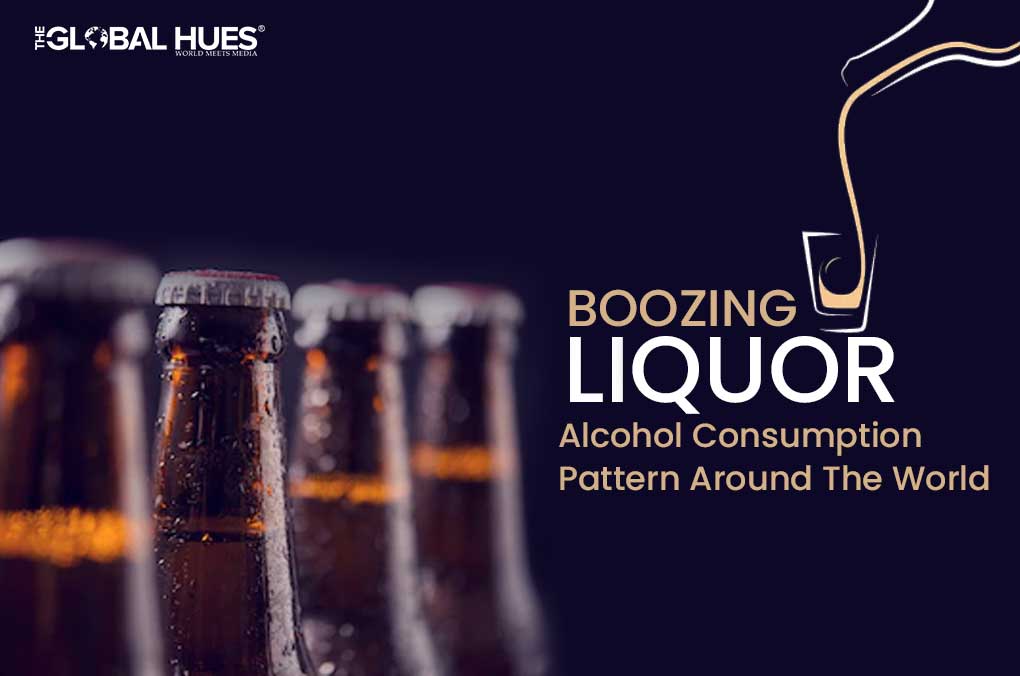Alcohol is considered a great escape from the exhaustion of daily life. Its consumption is the easiest way to get rid of stress and anxiety and despite its negative effects people love to consume liquor. Most countries restrict the consumption of alcohol with a minimum age, which means that a person below that particular age is not legally allowed to drink alcohol. This minimum age is generally between 18 to 21 and varies from country to country based on the consumption habits of its citizens.
The consumption rate of alcohol in every country is different. It also depends on the country’s cultural significance, legal restrictions and psychological conditions of the country. 2.8 million premature deaths worldwide are registered due to excess consumption of alcohol. Reportedly, out of total premature death due to alcohol, three quarters are younger than 70. And 28% of people are younger than 50.
These deaths are the consequences of heavy drinking or binge drinking. The parameters for heavy drinking are different for men and women. For women consumption of eight or more drinks per week is considered heavy drinking while for men, consuming more than 15 or more drinks per week comes under the category of binge drinking. In the US the average number of drinks consumed in a week is 3.6 drinks. This number varies in each country.
Countries With The Highest Alcohol Consumption
According to a survey by the World Health Organization, the country with the highest alcohol consumption in the world is Czechia. In Czechia per capita, alcohol consumption per year is 14.3 litres. Czechia tops the list of countries with the highest alcohol consumption in the world followed by Latvia and Moldova with 13.2 and 12.9 per capita alcohol consumption respectively.
Europe emerged as a leader in terms of per capita highest consumption of alcohol. In the list of highest alcohol-consuming countries, 9 out of 10 countries are in Europe.
However, a significant decline can be seen in the drinking habits of Millennials and Gen Zs. In comparison to the older generation, the younger generation is less attracted to alcohol. The awareness of healthy living pulls them away from drinking alcohol.
Drinking Patterns In Millennials And GenZs
Many reports suggested that Millennials and Gen Zs are very thoughtful when it comes to drinking. The generation has now become more conscientious about drinking alcohol. A consumer report trend report by Drizly shows that people belonging to the Gen Z group are more willingly to prefer non-alcoholic drinks.
3 out of 10 people from the Millennials and Gen Zs generation are actively limiting their alcohol intake. According to the survey by Numerator, 90% of the Millennials are ready to spend on the purchase of alcohol. On the other hand, this number reduces to 84% in Gen Zs. This decline in number depicts that the younger generation is less willing to spend on alcoholic beverages in comparison to the older generation.
The Economic Effects Of Conscientious Drinking
It is indeed a good thing that the younger generation is consuming less alcohol than before and promoting a healthy lifestyle. Most of the Millennials and Gen Zs prefer to spend their money on gym, food, and entertainment rather than spending it on alcohol.
But, what looks good for the generation might not be so good for the economy. No, we are not making all this up on our own. Various countries experience a decline in their tax revenue because of the lower collection of revenue from alcohol. Let’s give you a real-life example of a country whose revenue gets a serious hit because of the less consumption of alcohol by its citizens.
Why Japan Is Encouraging To Drink More?
In Japan, the alcohol and liquor industry is experiencing a decline in the past few years. Consequently, the revenue collection from this industry also saw a downfall. According to the National Tax Agency of Japan, the tax on liquor collected in the FY 1994 was 4.1% of the total collection. However, this number declined in further years. In FY 2010 the tax collection from alcohol only accounted for 3.3% of overall revenue. And in FY 2020 it further reduced to 1.9% of the total collection.
If we are talking in numbers, the total revenue from tax collection from liquor fell from 1,758,800 million Yen in 2000 to 1,068,100 million Yen in 2020. This is the reason why the Government of Japan is encouraging its youth to consume more alcohol to boost the economy.
The Japanese Government is inviting its youth to participate in the “Sake Viva” campaign to revitalise the drinking habits of young people. The country made an appeal to its citizens of age between 20 to 39 to submit different business plans, ideas or proposals to promote drinking habits.
However, this initiative received a lot of criticism also. The buzz around this initiative claims that this move by the Japanese government will result in unhealthy habits and raise many health concerns. The Government of Japan responds and clarifies that the sole purpose of this initiative is to boost the economic growth of the country and the government also urges people to drink responsibly.
Drinking alcohol is associated with many cultures. In some parts of the country, culture and alcohol go hand in hand. But to our surprise where on one hand excess drinking is considered harmful, its limited consumption is also becoming a problem for some countries. So it is now very important to strike a good balance between excess and restraints in drinking.
Must Read:
- SUCCESS STORY OF TIM COOK: A MAN WITH A VISION
- TOP 10 RICHEST BILLIONAIRES IN THE WORLD 2022
- Top 10 Indian Origin CEOs Leading International Companies
- HIGHEST-PAID CEOs IN THE WORLD
- Success Story Of Mukesh Ambani
- TOP 10 NEWSPAPERS IN THE WORLD 2022
- Elon Musk: Biography Of A Self-Made Entrepreneur And Billionaire
- 10 GADGETS TO KEEP YOU COOL THIS SUMMER
- 7 R’s Of Waste Management – Steps To Sustainability
- What Are The 5 Must Watch Netflix Thrillers
- Upcoming Shows And Films On Netflix In 2022




